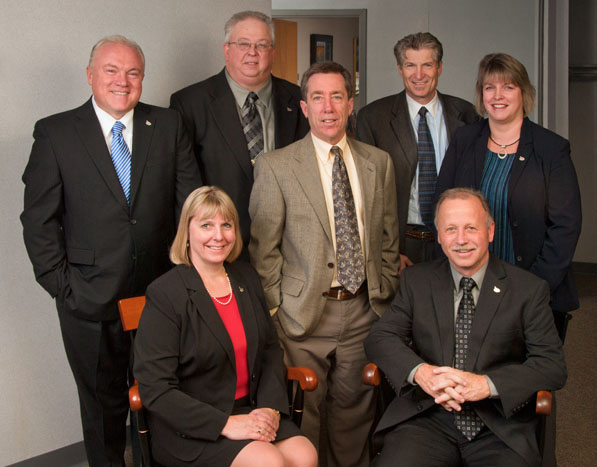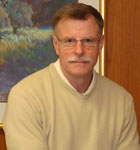Earth Systems is a company whose employees’ work is seen outwardly in the community, across the country, and around the globe. But what makes its work remarkable is a result of what happens within the walls of this geotechnical engineering firm. The privately owned San Luis Obispo, California-based firm has 143 employees and 12 offices throughout California, and one office in Beijing. Despite its scope, each branch exudes a familial company culture that has been passed down from Earth Systems’ founders.
 This culture is possible because, for CEO Craig Hill and the company, it’s not just about the bottom line. Rather, Earth Systems strives to be a steward of the community, provide mentorship to younger colleagues, and cultivate team players no matter how vast the multiple-office firm can sometimes feel. “Having been with this company for 34 years, I grew up in this culture, and I cannot imagine working in an environment that does not extend the values and respect as I have experienced,” Hill says. “I have worked out of numerous Earth Systems offices, had good mentorship, and was eventually able to reinforce our corporate culture through various leadership positions. I strive to be the boss that lives with integrity and strives for fairness, and at the same time holds employees accountable.”
This culture is possible because, for CEO Craig Hill and the company, it’s not just about the bottom line. Rather, Earth Systems strives to be a steward of the community, provide mentorship to younger colleagues, and cultivate team players no matter how vast the multiple-office firm can sometimes feel. “Having been with this company for 34 years, I grew up in this culture, and I cannot imagine working in an environment that does not extend the values and respect as I have experienced,” Hill says. “I have worked out of numerous Earth Systems offices, had good mentorship, and was eventually able to reinforce our corporate culture through various leadership positions. I strive to be the boss that lives with integrity and strives for fairness, and at the same time holds employees accountable.”
In the community, Earth Systems has worked with Habitat for Humanity, Boys and Girls Club of America, YMCA, Rotary Club, and Self Help Housing. Projects have involved determining properties of soil or bedrock, or making sure that building in an area is safe and sustainable. “It’s neat when other organizations reach out to you because they see you as more than just somebody that provides one service,” Hill says.
Working with nonprofits has always been beneficial for the company. Often times, prospective employees will come from these community partner agencies. Professional relationships are then made in sectors that would not have been made otherwise. Earth Systems’ employees are also valued for their participation in professional organizations like the California Geotechnical Engineering Association, the American Public Works Association, and the American Society of Civil Engineers, among others. Groups like these become the premier entities from which to recruit employees. “We found our best employees through personal recommendations and through relationships that we built,” Hill says. “We’re proactive at nurturing relationships through our involvement in outside organizations, both professionally and socially.”
For Hill, employee engagement is the key to retention and overall satisfaction. Paraphrasing Jim Collins’s Good to Great, Hill says you have to have the right people on the bus to know where to drive it. Hill seeks employees that are highly knowledgeable of their profession and passionate about educating themselves on the latest research or trends. “Above all, the employee must be one who is honest and trustworthy,” he says. “If they are, I can give them full freedom in the workplace, and that makes it more enjoyable for them to work here. We really value our people; they are our most important asset. They’re not just a number. There are people working for us now who came from much larger companies where everything was about a bottom line. The reality is that life is not a bottom line. We consider ourselves more of a family. We’re family first, but we are still a business and need to turn a profit.”
There’s definitely truth to that—about 30 to 40 percent of Earth Systems’ employees have worked for the company for more than 20 years, or for about half the lifetime of the company. “It’s good because those people recognize and like what they see in the company, or else they wouldn’t be here this long,” Hill says. “The challenge is when the company ages and we still need to bring in younger talent. You have a different mindset from different generations, and it’s about finding that balance so that we can coach instead of mentor.”

